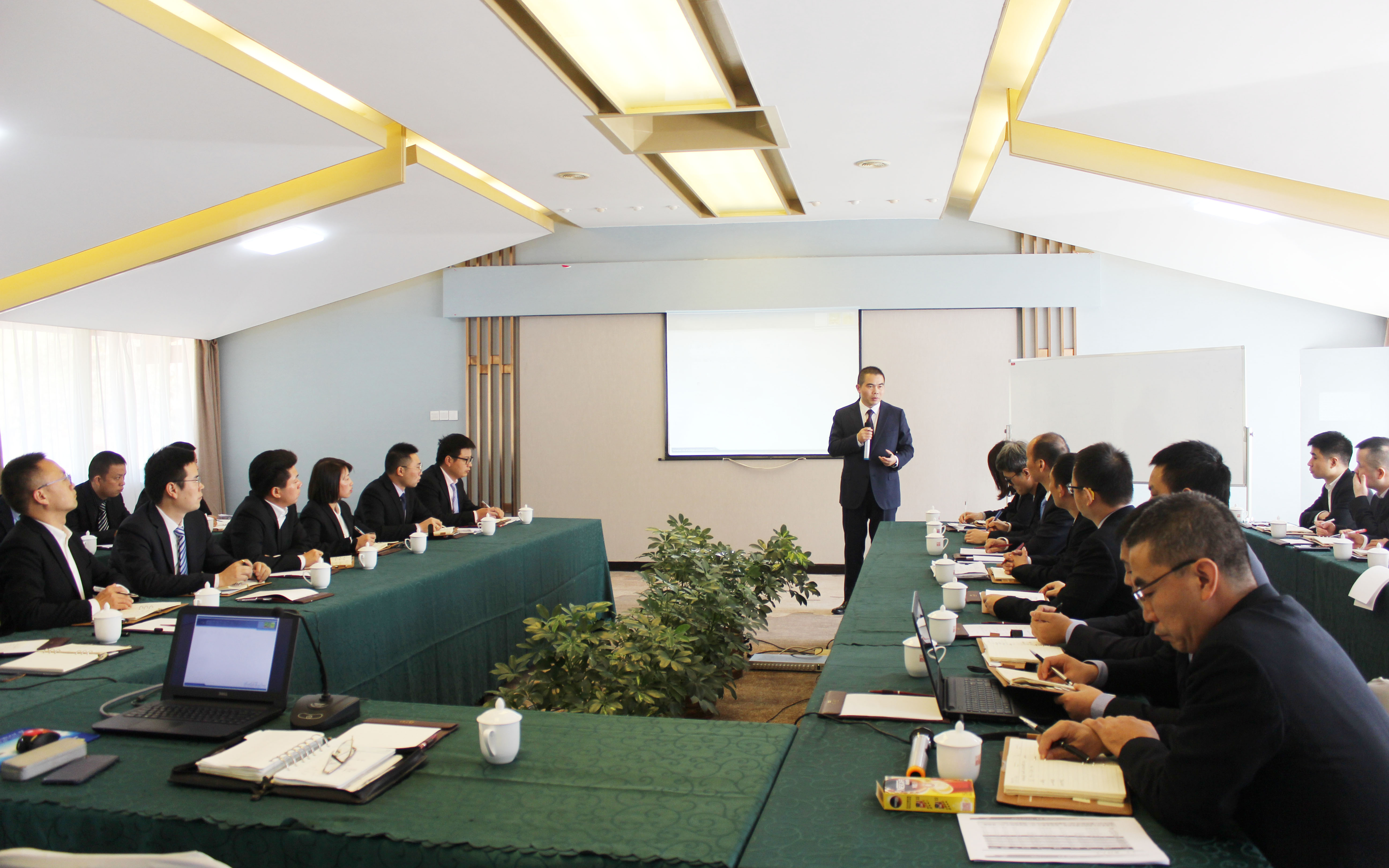
System is the fundamental guarantee of enterprise operation
On June 29, 2020, at the regular meeting of managers on Monday, Mr. Wang Fenghua, general manager, elaborated on the importance of system construction, and stressed that the enterprise system construction should have rules to abide by, strictly enforce the rules, and be prosecuted for violations.
The enterprise management system is the basis and criterion for the company to standardize the operation process, maintain the work order, improve the work efficiency, control the enterprise cost, increase the effective output and enhance the competitiveness of the enterprise. So, in terms of system construction, how can we make the system culture take root?

There are system to follow
Enterprise system is the general term of regulations and standards that employees should abide by in the production and operation of enterprises. The main forms of enterprise system include organizational structure design, functional division, process setting, technical standards, product standards, work standards and management forms. Because of the need of survival and development, the enterprise formulates these systematic, professional and unified regulations and guidelines. Its purpose is to require employees to act and work in accordance with the relevant norms and processes of enterprise operation, production and management within the scope of their responsibilities. As the saying goes, "no square without rules". Without a unified and standardized enterprise management system, the business system of an enterprise can not operate normally, and it is difficult to realize the development strategy of an enterprise. Since the system can play such an important role in the business process of enterprises, what work should we do well in the system construction? First, the preliminary investigation should be sufficient. Only by going to the grass-roots level to understand the first-hand information, can the system compiled by the drafters be targeted and reasonable, and the process planned and designed can conform to the logic; second, the system design is a systematic project, in the management activities, we can neither let the system have a vacuum, nor let the system terms conflict; third, the system builder should manage from the enterprise Starting from the actual level of the system, we should gradually improve the pertinence and timeliness of the system through the accumulation of time; fourth, the formulation of the system and standards should take into account the enforceability, that is, whether the responsibility can be taken into account in the implementation process
System enforcement must be strict and violations must be punished
During the period of Shang Yang's reform, Ying Si, the crown prince, broke the law when he was young. Shang Yang punished Gongsun Jia, the prince's division, with the punishment of "cutting off his nose". "Warring States policy" comments on this matter: "Shang Junzhi Qin, decrees to act, fair and selfless, punishment is not taboo strong, reward is not intimate, law and crown prince, Tsing his fu.". It was precisely because Shang Yang made it necessary to investigate violations of the new law that he won the credibility of the society and made the Qin State "refuse to pick up any trace after the end of the new year, the people did not take it in vain, the military reform was strong, and the princes were afraid." System is a document and an order; execution is implementation and practice; system is the basis of execution, and execution is the practice of system; without implementation, system is just a shell. In the process of implementing the system, we can't take it out and read it when necessary, and put it in the drawer when it is not necessary. We should not regard the system as a scarecrow or a tool to scare birds. The system is used to threaten the staff, not to enforce it. As long as someone violates the system and drifts away from the rules, whether he is a grass-roots employee or a management cadre, we must act in accordance with the provisions of the system and never allow personal feelings to be mixed in. At the same time, our management cadres have the obligation to publicize the management system of the company, as well as the responsibility of mutual supervision. Only by effectively publicizing the system can employees understand and identify with the system, and it is possible to implement the provisions of the system. Only when everyone is the executor and the supervisor can the executive culture be formed within the enterprise. For the newly issued enterprise management system, we need to establish a long-term strengthening implementation plan, after a period of "solidification", and finally make employees gradually develop the habit of implementation
Punishment is the means, improvement and promotion is the purpose
Each enterprise will formulate some reward and punishment clauses, the purpose of which is to commend and reward the employees for their good performance and compliance with the law, and to implement certain punishment measures for the employees who violate the rules and regulations. Reward is a way to motivate employees and transfer positive energy. On the one hand, the formulation of punishment clauses allows the party concerned to bear the responsibility and consequences for violating the enterprise system, on the other hand, it can serve as a warning and education for other employees, and more importantly, it is for improvement and promotion. The company hopes that cadres at all levels will pay attention to the daily behavior of employees, correct their mistakes in time, and help their subordinates improve and upgrade.
In a word, the management system of an enterprise is the fundamental guarantee for the normal operation of the enterprise. We should not only have laws to abide by, but also be strict in law enforcement and be prosecuted for violations. Only in this way can a strong executive culture be formed within the enterprise, and the enterprise concept of "strong execution, heavy rules and discipline" can find its foothold.